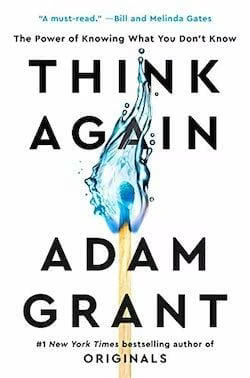The Ways We Deceive Ourselves

I’m reading a cool book right now that talks about how to think more clearly. One of my favorite parts so far is the idea of speaking to ourselves in different roles.

The book is called Think Again >, by Adam Grant, and it talks about the various ways we try to convince ourselves of things—or be convinced by others.
We become Preachers when our beliefs are in jeopardy, so we launch into sermons to promote our ideals.
We enter Prosecutor mode when we see flaws in peoples’ reasoning, so we launch arguments to win our case.
We go into Politician mode when we seek to win over an audience, so we campaign and lobby for their support.
He didn’t frame it this way, but I see all of us as both perpetrators and victims of these techniques.
We can all become these roles at different times—the question is whether you can escape when it happens.
The trick is realizing that it’s happening.
He also spends a lot of time talking about Superforecasting > as well, which is a book about the scientific mindset.
And the solution is to use a fourth mindset that Grant also talks about, which is that of the Scientist. In this mode you aren’t preaching, or teaching, or selling.
Instead, you’re listening, thinking, and testing.
I’m getting more out of this book as I read, but I think this will likely be my main takeaway. In short, when you feel yourself in the midst of a debate—either with someone else or with yourself—ask what roles each side is playing.
Preacher ❌
Prosecutor ❌
Politician ❌
Scientist ✅
Are you preaching to yourself? Are you trying to sell yourself something because you want it? Or is someone else doing this to you?
Then, if you’re able to identify the roles in question, try to pull both sides of the conversation towards behaving more like a scientist.